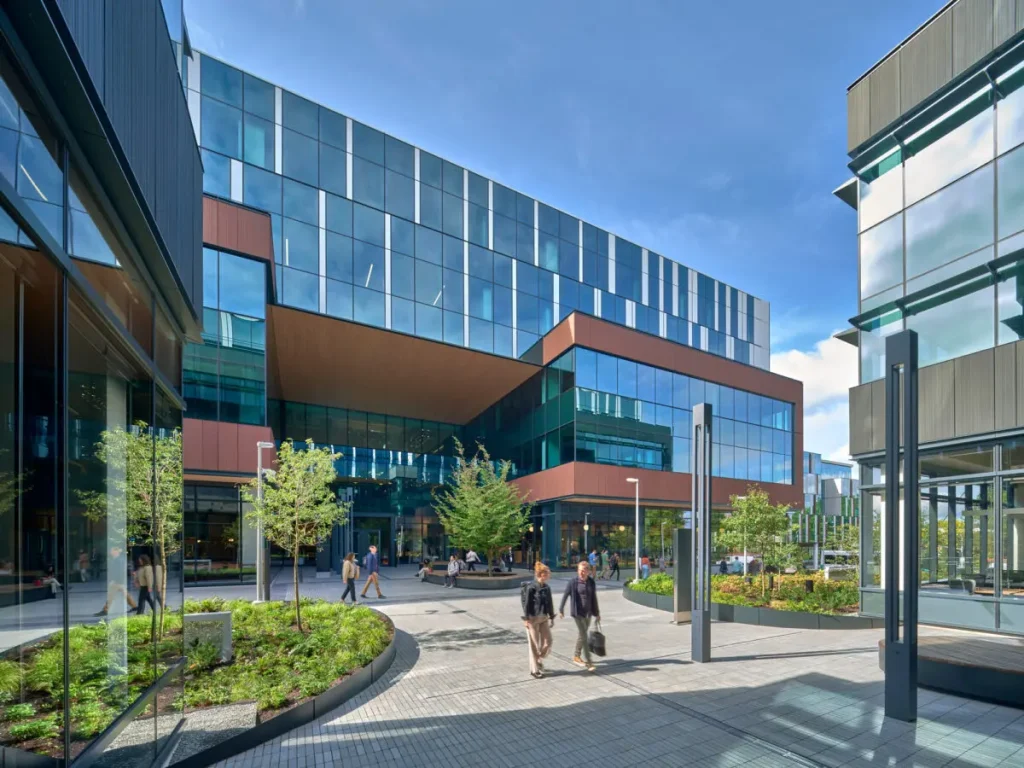JAKARTA, studyinca.ac.id – Campus Technology is revolutionizing the educational landscape across the globe, and Indonesia is no exception. As the country strives to enhance its educational outcomes and prepare its youth for a competitive future, integrating advanced technology into learning environments has become paramount. This article explores how campus technology is innovating learning experiences for Indonesia’s next generation, highlighting successful implementations, challenges, and future directions.
Understanding Campus Technology

1. What is Campus Technology?
Campus technology encompasses a wide range of tools and systems designed to enhance the educational experience within academic institutions. This includes hardware (like computers and smartboards), software (like learning management systems), and digital resources (like online libraries and e-learning platforms). The goal is to create an engaging, interactive, and efficient learning environment that meets the needs of both students and educators.
2. Importance of Campus Technology in Indonesia
In Indonesia, where educational disparities exist between urban and rural areas, campus technology plays a crucial role in:
- Improving Access to Education: Technology can bridge the gap between different regions, providing students with access to quality educational resources regardless of their geographical location.
- Enhancing Learning Outcomes: Interactive and personalized learning experiences facilitated by technology can lead to better understanding and retention of knowledge.
- Preparing Students for the Workforce: With the rapid advancement of technology in various industries, equipping students with digital skills is essential for their future employability.
Innovations in Campus Technology in Indonesia
1. E-Learning Platforms
One of the most significant advancements in campus technology has been the rise of e-learning platforms. Universities in Indonesia have adopted systems such as Moodle and Google Classroom to facilitate online learning. These platforms allow for:
- Flexible Learning: Students can access course materials anytime and anywhere, accommodating different learning paces and styles.
- Interactive Features: Tools for discussions, quizzes, and assignments foster engagement and collaboration among students and instructors.
Example: Universitas Indonesia has successfully implemented an e-learning system that not only supports traditional courses but also offers massive open online courses (MOOCs), reaching thousands of learners nationwide.
2. Smart Classrooms
The concept of smart classrooms is gaining traction in Indonesian universities. These classrooms are equipped with advanced technology, including interactive whiteboards, projectors, and audio-visual equipment, to create an immersive learning environment.
- Real-Time Collaboration: Smart classrooms facilitate group work and discussions, allowing students to collaborate effectively on projects.
- Enhanced Presentations: Instructors can utilize multimedia resources to make lectures more engaging and informative.
Example: At Binus University, smart classrooms have transformed the teaching approach, enabling faculty to integrate technology seamlessly into their lessons.
3. Virtual Reality (VR) and Augmented Reality (AR)
Emerging technologies like VR and AR are beginning to find their place in Indonesian education. These technologies offer immersive learning experiences that can enhance understanding in fields such as science, engineering, and history.
- Experiential Learning: Students can explore complex concepts through simulations and virtual environments, making learning more tangible and memorable.
- Field Trips and Exploration: AR can bring historical sites or scientific phenomena to life, allowing students to experience them without leaving the classroom.
Example: Several universities, including Universitas Gadjah Mada, are experimenting with VR simulations in medical training, providing students with hands-on experiences in a safe environment.
Challenges in Implementing Campus Technology
While the benefits of campus technology are clear, several challenges must be addressed to ensure its successful implementation in Indonesia:
1. Infrastructure Limitations
Many regions in Indonesia still face inadequate internet connectivity and technological infrastructure. Ensuring that all students have access to the necessary tools and resources is a significant hurdle.
2. Training and Support
Educators often require training to effectively integrate technology into their teaching practices. Ongoing professional development and support are essential for maximizing the potential of campus technology.
3. Resistance to Change
Cultural attitudes towards traditional teaching methods can impede the adoption of new technologies. Encouraging a shift in mindset among educators and students is crucial for fostering a tech-savvy learning environment.
Future Directions for Campus Technology in Indonesia
1. Expanding Access to Technology
Efforts must be made to improve infrastructure, particularly in rural areas, ensuring that all students have access to reliable internet and digital devices. Government initiatives and partnerships with private sectors can play a vital role in this expansion.
2. Emphasizing Digital Literacy
As technology continues to evolve, equipping students with digital literacy skills will be essential. Educational institutions should integrate digital skills training into their curricula to prepare students for the demands of the modern workforce.
3. Fostering Collaboration Between Institutions
Collaboration between universities, tech companies, and government agencies can drive innovation in campus technology. Joint initiatives can lead to the development of tailored solutions that address local educational challenges.
Conclusion
Campus technology is a powerful tool for transforming learning environments and enhancing educational outcomes in Indonesia. By embracing innovative technologies, universities can provide engaging, accessible, and effective learning experiences for the next generation.
As we move forward, addressing the challenges of infrastructure, training, and resistance to change will be crucial in realizing the full potential of campus technology. With a commitment to collaboration and continuous improvement, Indonesia can pave the way for a brighter educational future.
Improve Your Abilities: Explore Our content on Knowledge
Take a Look at Our Latest Article on Campus Policies: Guiding Our Community Standards!

